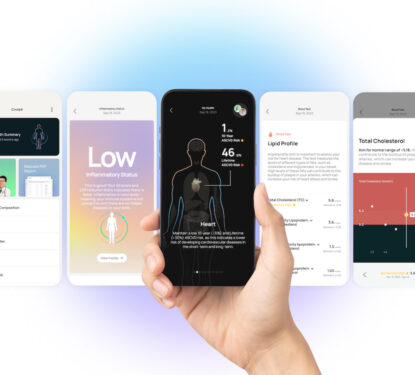
The festive period is all about spending plenty of time together – for better or for worse. We’re all guilty of planning things back-to-back, whether that’s Christmas lunches and dinners or phone calls with relatives abroad. But when we overextend ourselves, we stop showing up the way we should. Mindful connection is a must to make Christmas – and any other holiday – more meaningful and enjoyable.

Viv Kan is an expert in mindful intimacy, and she specialises in building better connections with loved ones. She says that investing in authentic and genuine interpersonal bonds is more than just getting some face-time in; it’s about real awareness – something that many of us struggle with when we’re pressed for time or overstimulated.
“Connecting more mindfully means being present and truly listening. We sometimes forget that connection and intimacy begins with providing our full awareness,” she explains. “And that’s essential, because ultimately the quality of our relationships determines our life satisfaction.”
Here are some of Viv’s best ways to have a more mindful Christmas and practice meaningful connections with family and loved ones this holiday season.
1. Under-commit yourself
It’s tempting to say yes to everything – after all, the holidays are for catching up and spending quality time together, right? That may be true, but it can also backfire.
“I am guilty of planning things 24/7, and I’ve learned how draining it can be,” says Kan. “Our energy is limited, and even more so throughout the holidays. Instead, reserve yourself for the select few events with people that align with your life’s purpose.”
For example, if you need a solid eight hours of sleep to really feel like yourself, don’t commit to any events that will keep you out well past your bedtime. Opt for a catch-up coffee during the day instead.
2. Sit in silence

“I know it sounds simple but it’s so hard!” Kan laughs. She suggests spending a minimum of 10 minutes in silence every day to train your mind to be aware of your thoughts. You’ll notice your inner dialogue, judgements and preconceived notions – all of which help us to become more self-aware, especially while connecting with others.
3. Embrace deep conversation

Once you’ve gotten small talk out of the way, show the people around you that you’re genuinely curious about understanding who they are. Challenge yourself to ask questions that inspire more meaningful conversations, whether that’s one-on-one or even around the dinner table. Kan suggests asking what someone is grateful for at that moment, or what small or big win they’re celebrating that week.
Know someone who’s not a big talker? Give them a hug instead (with their consent)!
4. Make space for different perspectives
Tempted to jump in and speak your mind when a family member brings up politics over Christmas dinner? Kan says there’s much value in learning how to pause before you react.
“My clients often grapple with what’s known as ‘closeness communication bias’, or the tendency to assume that people we’re close with will say or react based in line with our own beliefs about them,” explains Kan. The best approach is pausing and thinking before you speak, even if you don’t agree with them (which is fine!).
“Show that you’re interested in understanding their perspective by asking thoughtful questions that don’t start with ‘why’,” suggests Kan, adding that “why” questions may make people feel as though they must justify their beliefs, which can lead to defensiveness.
Read more: How To Keep Kids Connected to Older Family Members During COVID






